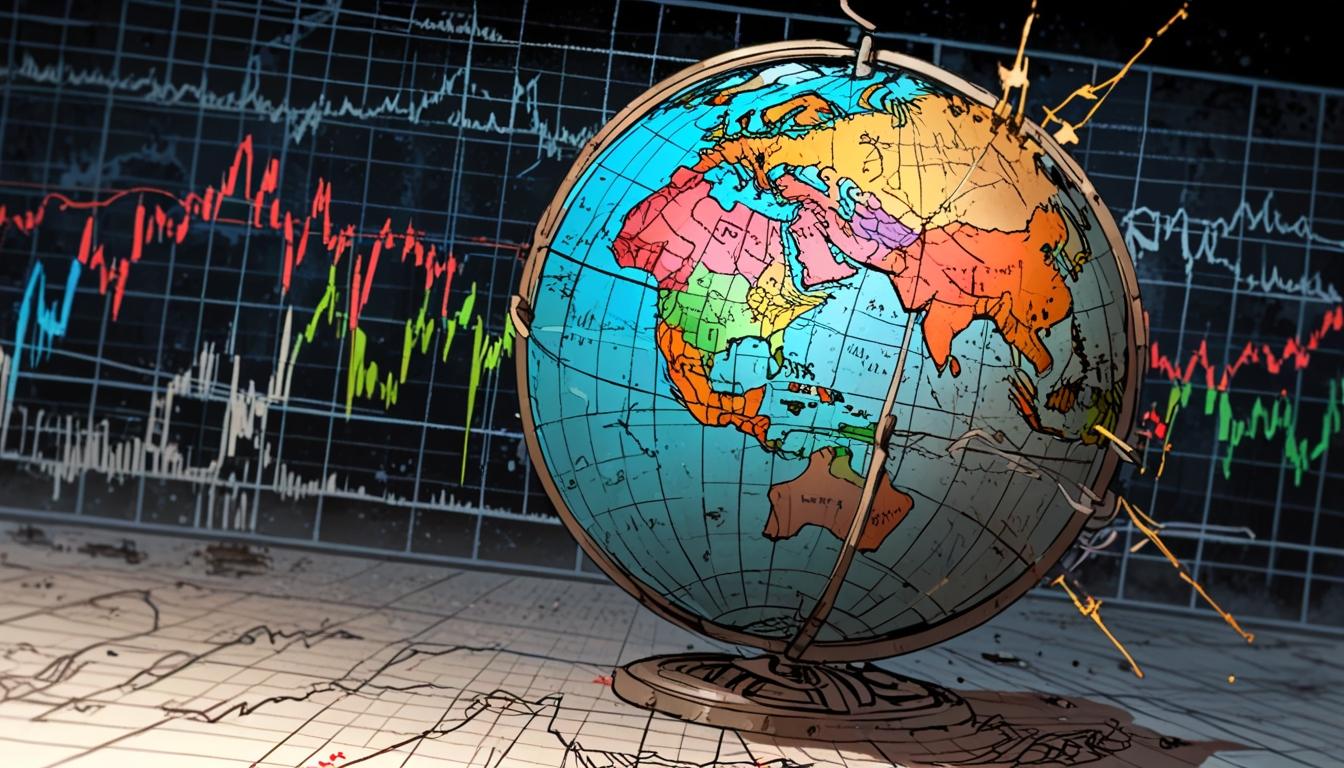The global economic outlook is showing signs of significant deterioration, influenced largely by the ongoing US-driven trade disruptions, according to new research reported by the Financial Times. This negative shift in sentiment comes as policymakers prepare to convene in Washington for critical International Monetary Fund (IMF) and World Bank spring meetings.
The Brookings-FT Tracking Indexes for the Global Economic Recovery (Tiger) reveal a sharp decline in confidence indicators worldwide, coupled with a downturn in financial market conditions. This contrasts starkly with the relatively steadfast economic performance at the start of the year. Notably, the United States exhibits the most dramatic drop, registering its lowest confidence levels since the index’s inception, along with significant weakening in financial markets. Similar patterns of depressed confidence were observed in China and Germany.
Eswar Prasad, a senior fellow at the Brookings Institution, characterised the situation as a “huge shock” and highlighted the unique challenges faced by open economies dependent on trade. Speaking to the Financial Times, he said: “Every open economy that relies on trade is going to get squeezed, and on top of that you will have [negative] confidence effects.” While he stopped short of predicting a global recession, Prasad cautioned that the breakdown in global trade and increased policy uncertainty would considerably hinder growth.
This analysis emerges on the eve of the first IMF/World Bank spring meetings since the inauguration of US President Donald Trump. Such gatherings are pivotal for global economic coordination, bringing together finance ministers and economic policymakers from around the world. The IMF’s managing director, Kristalina Georgieva, previously indicated that the fund was preparing to revise down its growth forecasts in light of rising financial market volatility and unprecedented trade policy uncertainty—“literally off the charts,” in her words.
Amid these developments, Washington is awaiting clarity on the Trump administration’s approach to international financial institutions. The White House has initiated a review of the United States’ engagement with these bodies, and on Wednesday, Treasury Secretary Scott Bessent is expected to outline the new administration’s stance on the IMF and World Bank during discussions.
In regional trade matters, South Korea’s acting president Han Duck-soo has publicly declared that the country “will not fight back” against impending US tariffs. Speaking to the Financial Times ahead of planned trade talks with the Trump administration, Han emphasised South Korea’s historical debt to the United States, stating: “The role of the US was huge in making Korea what it is now.” His remarks signal a potentially conciliatory approach in the face of escalating trade tensions.
Meanwhile, in the Middle East, the Israeli military has admitted to “professional failures” following an incident in southern Gaza where 15 unarmed emergency workers were killed last month. The Israel Defense Forces acknowledged inconsistencies in their initial accounts after video evidence challenged their reports and announced the dismissal of an officer involved.
Within China, leading technology companies such as Alibaba, JD.com, and Pinduoduo are spearheading a multi-billion-dollar initiative aimed at redirecting traditional exporters toward domestic markets. This movement seeks to offset the adverse effects of US tariffs on Chinese exports amid the intensifying trade conflict.
On the diplomatic front, the Trump administration has proposed a draft executive order that would abolish the US state department agency responsible for African policy and close numerous embassies across the continent. This move has been met with stark criticism, with US Senator Marco Rubio dismissing the document as a “hoax.”
In other geopolitical news, Ukraine’s President Volodymyr Zelenskyy reported fresh Russian attacks despite an order from President Vladimir Putin to suspend hostilities over the Easter holiday. Zelenskyy suggested either a lack of full control by Putin over his military forces or a reluctance within Russia to genuinely pursue peace efforts.
Additional economic events include the People's Bank of China’s scheduled announcement on its loan prime rate amid the broader context of global monetary policy adjustments.
The Financial Times continues to monitor these interconnected developments as they unfold against the backdrop of rising geopolitical tensions and evolving trade dynamics, all influencing the trajectory of global economic recovery.
Source: Noah Wire Services
